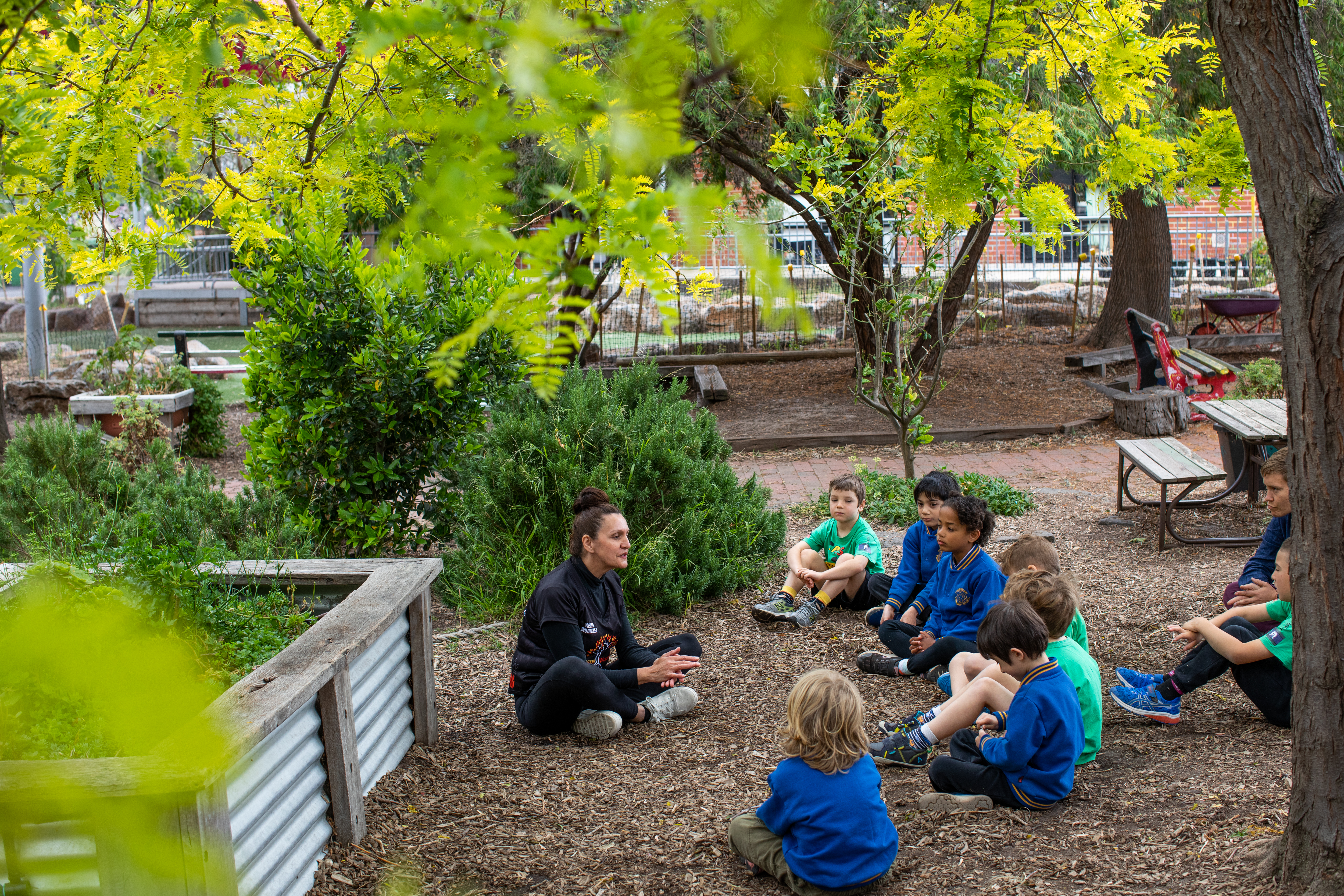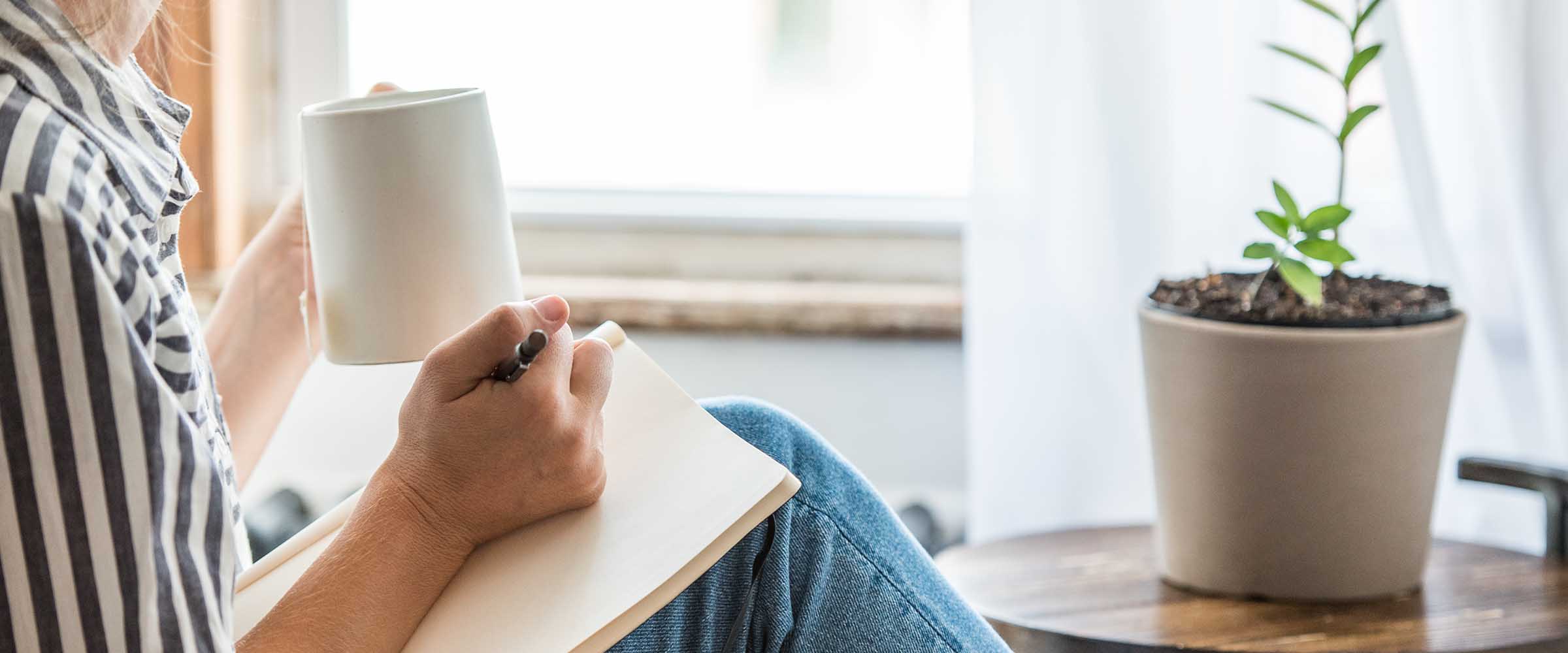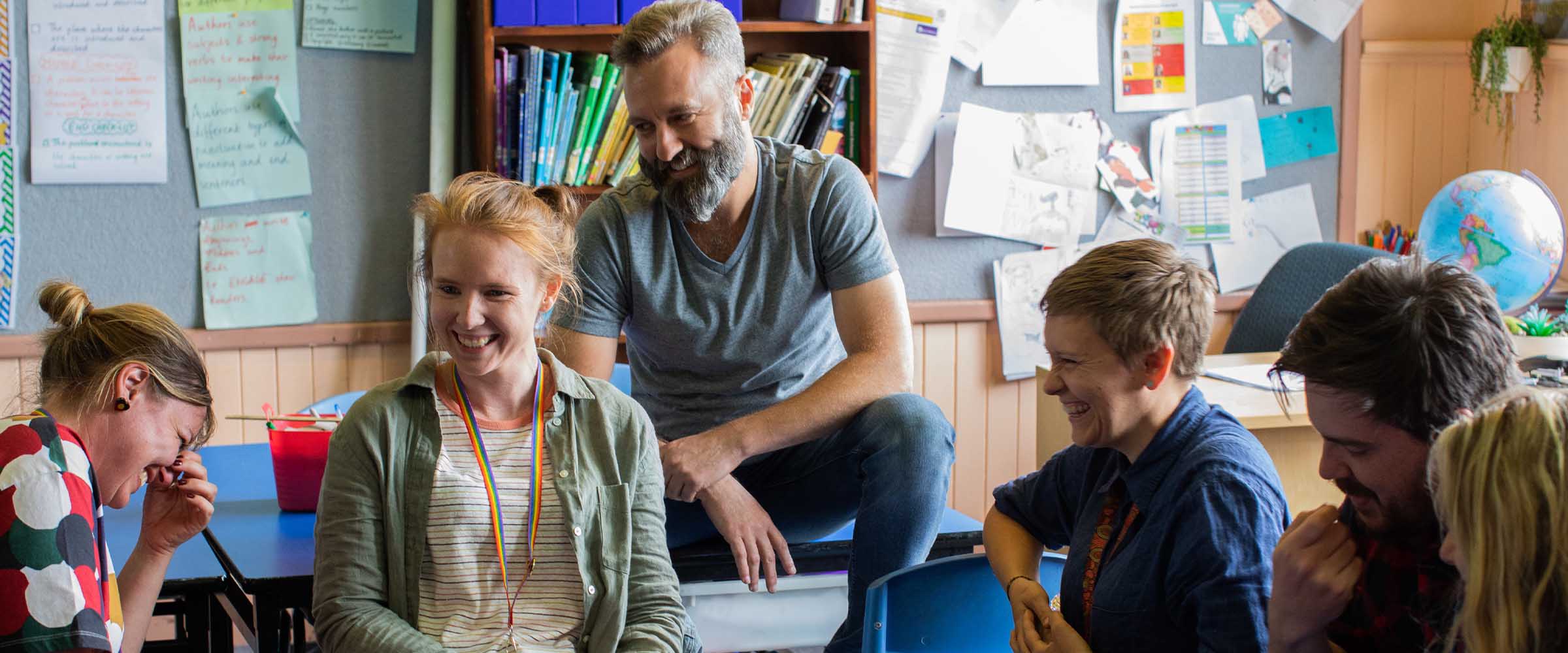On this page
Download this Fact Sheet:
Fact Sheet: How to practise mindfulness (3.1 MB, PDF)
Mindfulness in practice
There are 2 main ways
The first is ‘formal’ practice, otherwise known as mindfulness meditation. It involves being seated and paying attention to the present moment. This practice can last for a few minutes, up to an hour, or longer for some people. The second is ‘informal’ practice. This means being mindful while we’re doing things in our day-to-day lives. For example, this might be paying attention in class, while driving or washing dishes.
Body scans and breathing meditation
You can practise mindful meditation in different ways, such as moving attention through various parts of your body (a body scan) or concentrating on your breathing. When practising mindfulness in these ways, you may notice thoughts and feelings. If you feel able, you may choose to notice these with a sense of curiosity and non-judgement. If your attention wanders, you may like to bring your attention back to your body or breathing. It’s important to note that this practice may not suit everyone. Trying a new skill can feel uncomfortable. Be gentle with yourself and stop if you need to. You can always try again later.
How to try breath meditation:
- let yourself be free of any expectations about how the meditation should go
- adopt a relaxed but upright sitting posture with your eyes closed
- when settled, using the sense of touch by placing your hand on your belly, focus your awareness on your breath
- observe and acknowledge what you are experiencing in the moment. Do this without trying to change thoughts or feelings or to solve any problems that come to mind
- as you breathe, focus on the point where the air enters and leaves your body
- if thoughts or feelings arise that distract you, you may wish to gently refocus on your breath
- if you feel distressed or wish to stop, do so, and reach out to a trusted person if you need support. You can find a list of support services on this page
- when you’re ready to finish, gently open your eyes, reconnect with the environment, and ease yourself into whatever needs your attention.
You may like to start with 5 or 10 minutes of meditation once or twice a day. You can build it up as you become more comfortable with the practice.
If your mind wanders
You may find your thoughts wandering. That’s completely normal. There’s no need to criticise yourself if your mind wanders – just gently bring it back to your breathing each time. Repeatedly bringing your attention back to your breath and learning to be accepting and self-compassionate creates a mindful state.
You can practise mindfulness in everyday tasks
You can take a mindful approach to everyday activities, no matter how mundane or simple. The informal practice of mindfulness is easy to build into your day. Next time you have a snack, take your time and focus on the feel, smell, taste and sensation of chewing. Bring your full awareness to the task of brushing your teeth or washing the dishes. The beauty of mindfulness is that you can do it anywhere, anytime, without any special equipment.
Mindfulness practise in your setting
Not all children or young people will be interested in, or engage with, mindfulness, and that’s OK. Offer it as an optional activity and invite children to take part in their own time.
Mindfulness activities may support children and young people by:
- increasing self-awareness, self-management, social awareness, relationship skills and improving decision-making
- encouraging them to identify situations where mindfulness may be helpful • helping them focus on a particular skill (for example, self-awareness).
When ending mindfulness practice in a learning community environment, take time to observe children and young people to identify if any have experienced strong feelings during the session. Consider checking in with them to provide help-seeking information and support.
Consider providing information for families
Involving families in understanding mindfulness means that they can discuss it with their child and consider how mindfulness activities may support their child’s learning. You may like to invite families to a mindfulness session. Smiling Mind has resources to develop your skills in leading mindfulness meditation. You may also like to talk to your leadership team about teaching mindfulness as part of your social and emotional curriculum.
-
Bibliography
Crain, T., Schonert-Reichl, K., Roeser, R. Cultivating teacher mindfulness: Effects of a randomized controlled trial on work, home, and sleep outcomes. Journal of Occupational Health Psychology. 2017 Apr;22(2):138-152. doi: 10.1037/ocp0000043.
Davis, D., & Hayes, J. (2012). What are the benefits of mindfulness. Washington: America Psychological Association. Retrieved from http://www.apa.org/monitor/2012/07-08/ce-corner.aspx.
Donald, J., Sahdra, B., Van Zanden, B. et al. Does your mindfulness benefit others? A systematic review and meta-analysis of the link between mindfulness and prosocial behavior. British Journal of Psychology (2018) DOI:10.1111/bjop.12338
Flook, L., Goldberg, S., Pinger, L., Bonus, K., & Davidson, R. (2013). Mindfulness for teachers: A pilot study to assess effects on stress, burnout, and teaching efficacy. Mind, Brain, and Education, 7(3), 182-195.
Greenberg, J., Reiner, K., Meiran, N. "Mind the trap": mindfulness practice reduces cognitive rigidity. PLOS One. 2012;7(5):e36206.
Janssen, M., Heerkens, Y., Kuijer, W. et al. Effects of Mindfulness-Based Stress Reduction on employees' For mental health: A systematic review. PLOS One. 2018 Jan 24;13(1):e0191332. doi: 10.1371/journal.pone.0191332.
Klingbeil, D., Fischer, A., Renshaw, T., et al. (2017). Effects of Mindfulness-Based Interventions on Disruptive Behavior: A Meta-Analysis of Single-Case Research. Psychology in the Schools. 54. 10.1002/pits.21982.
Kuyken, W., Ball, S., Crane, C., Ganguli, P., Jones, B., Montero-Marin, J., Nuthall, E., Raja, A., Taylor, L., Tudor, K., Viner, R. M., Allwood, M., Aukland, L., Dunning, D., Casey, T., Dalrymple, N., De Wilde, K., Farley, E. R., Harper, J., Kappelmann, N., … Williams, J. M. G. (2022). Effectiveness and cost-effectiveness of universal school-based mindfulness training compared with normal school provision in reducing risk of mental health problems and promoting well-being in adolescence: the MYRIAD cluster randomised controlled trial. Evidence-based mental health, 25(3), 99–109. Advance online publication. https://mentalhealth.bmj.com/content/25/3/99
Langer, E., Djikic, M., Pirson, M., Madenci, A., & Donohue, R. (2010). Believing is seeing: Using mindlessness (mindfully) to improve visual acuity. Psychological Science, 21(5), 661-666.
Lin, J., Chadi, N., Shrier, L. Mindfulness-based interventions for adolescent health. Current Opinion in Pediatrics. 2019 Apr 1. doi: 10.1097/MOP.0000000000000760.
MacKenzie, M., Abbott, K., Kocovski, N. Mindfulness-based cognitive therapy in patients with depression: current perspectives. Neuropsychiatric Disease and Treatment. 2018 Jun 18;14:1599-1605. doi: 10.2147/NDT.S160761.
Meiklejohn, J., Phillips, C., Freedman, M. L., Griffin, M. L., Biegel, G., Roach, A., & Isberg, R. (2012). Integrating mindfulness training into K-12 education: Fostering the resilience of teachers and students. Mindfulness, 3(4), 291-307
Schutte, N. & Malouff, J. A meta-analytic review of the effects of mindfulness meditation on telomerase activity. Psychoneuroendocrinology. 2014 Apr;42:45-8. doi: 10.1016/j.psyneuen.2013.12.017.
Tang, Y., Hölzel, B., Posner, M. The neuroscience of mindfulness meditation. Nature Reviews Neuroscience. 2015 Apr;16(4):213-25. doi: 10.1038/nrn3916.
-
External links
headspace: 6 ways to practise mindfulness
Smiling MindSupport services
Mindfulness may give rise to strong or uncomfortable feelings, for educators, children or young people. Here are some organisations that may be able to provide some support:
- The Beyond Blue Support Service provides support any time of the day or night. To talk with a trained mental health professional, call 1300 22 4636
- headspace provides online support and counselling for young people aged 12 to 25 on 1800 650 890 (9am to 1am daily)
- Kids Helpline is a crisis support service for children and young people aged 5 to 25 on 1800 55 1800
- 13Yarn is a 24-hour dedicated support service for Aboriginal and Torres Strait Islander Peoples: 13 92 76
For a complete list and downloadable posters for your learning community, visit Mental health services and support helplines.


